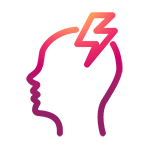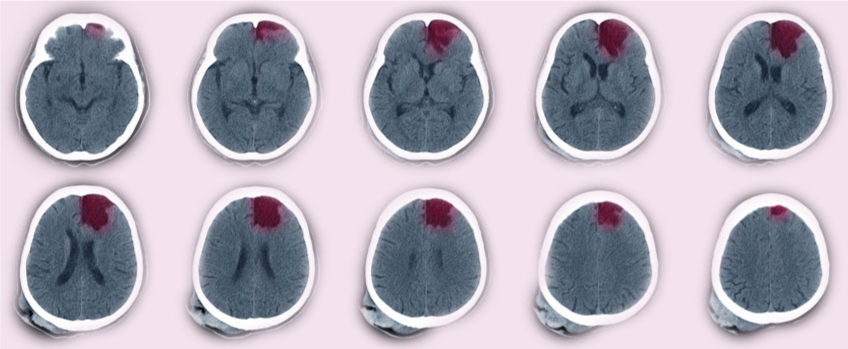What are Brain Lesions?
A brain lesion is a damaged or destroyed area of the brain. It may occur due to head trauma or other diseases that can cause inflammation, malfunction, or destruction of brain cells or brain tissue. The lesion might be localised to one part of the brain, or it may be widespread.
What are the symptoms of Brain lesions?

Headaches

Neck pain or stiffness

Nausea, vomiting and lack of appetite

Vision changes or eye pain

Changes in personality

Trouble concentrating

Memory loss

Seizures

Fever

Difficulty in moving

Delayed speech, blurred vision, impaired hearing

Language and speech problems
- Traumatic – gunshot wound
- Infectious – meningitis
- Malignant – glioma
- Benign brain lesions – meningioma – stroke
- Vascular – neurofibromatosis
- Genetic – multiple sclerosis
- Immune – multiple sclerosis
- Plaques (deposits of substances in brain tissue) – Alzheimer’s disease
- Brain cell death or malfunction – Parkinson’s disease
- Ionizing radiation – radiation leading to the death of healthy brain tissue.
Generalised Seizures
- Absence seizures
- Tonic seizures
- Atonic seizures
- Clonic seizures
- Myoclonic seizures
- Tonic – clonic seizures.
- Aging
- Vascular conditions such as stroke, high blood pressure and cerebral artery aneurysms
- Family history of brain lesions
- Trauma to the brain
- Poor diet, consumption of food with high fat and cholesterol content
- Infections, harmful germs or bacteria in the brain
- Primary tumours or metastatic tumours
- Toxins in the body such as excessive amounts of alcohol or cigarette smoke, elevated amounts of ammonia and urea due to kidney issues
- Autoimmune diseases such as lupus and multiple sclerosis.
- Plaques or build-up of abnormal protein in the brain tissues
- Exposure to radiation or certain chemicals increase the risk of tumours and lesions
Physical and neurological examination along with complete history of the patient is required to diagnose brain lesion. Most of the cases will also require diagnostic tests.
Diagnostic tests:
- CT scan
- MRI
- Angiography
- Lumbar puncture
- Blood tests
Treatment and prognosis of brain lesions depend upon the type of lesion, its location, and the cause.
Common approaches
- Surgery to remove the lesions that are caused by a brain tumour
- Chemotherapy and radiation therapy for cancerous lesions
- Medication for infections, such as antibiotics or other antimicrobial drugs
- Medication to change the immune system’s response.


